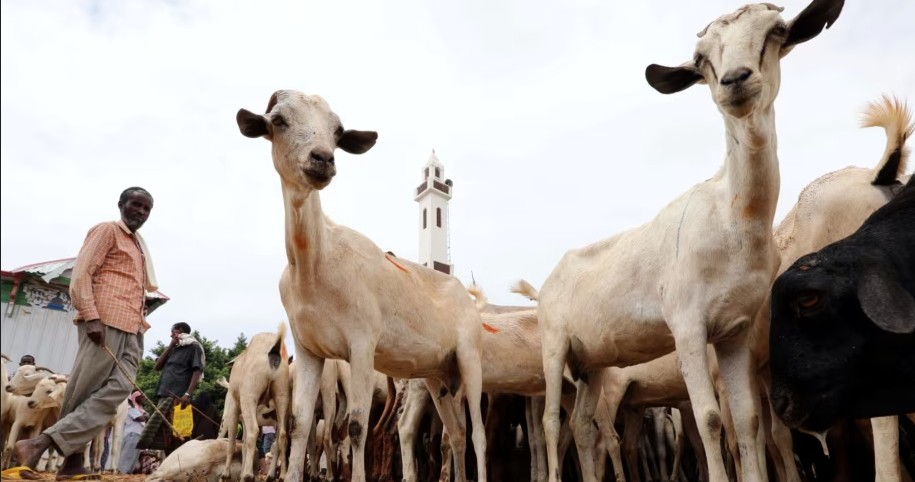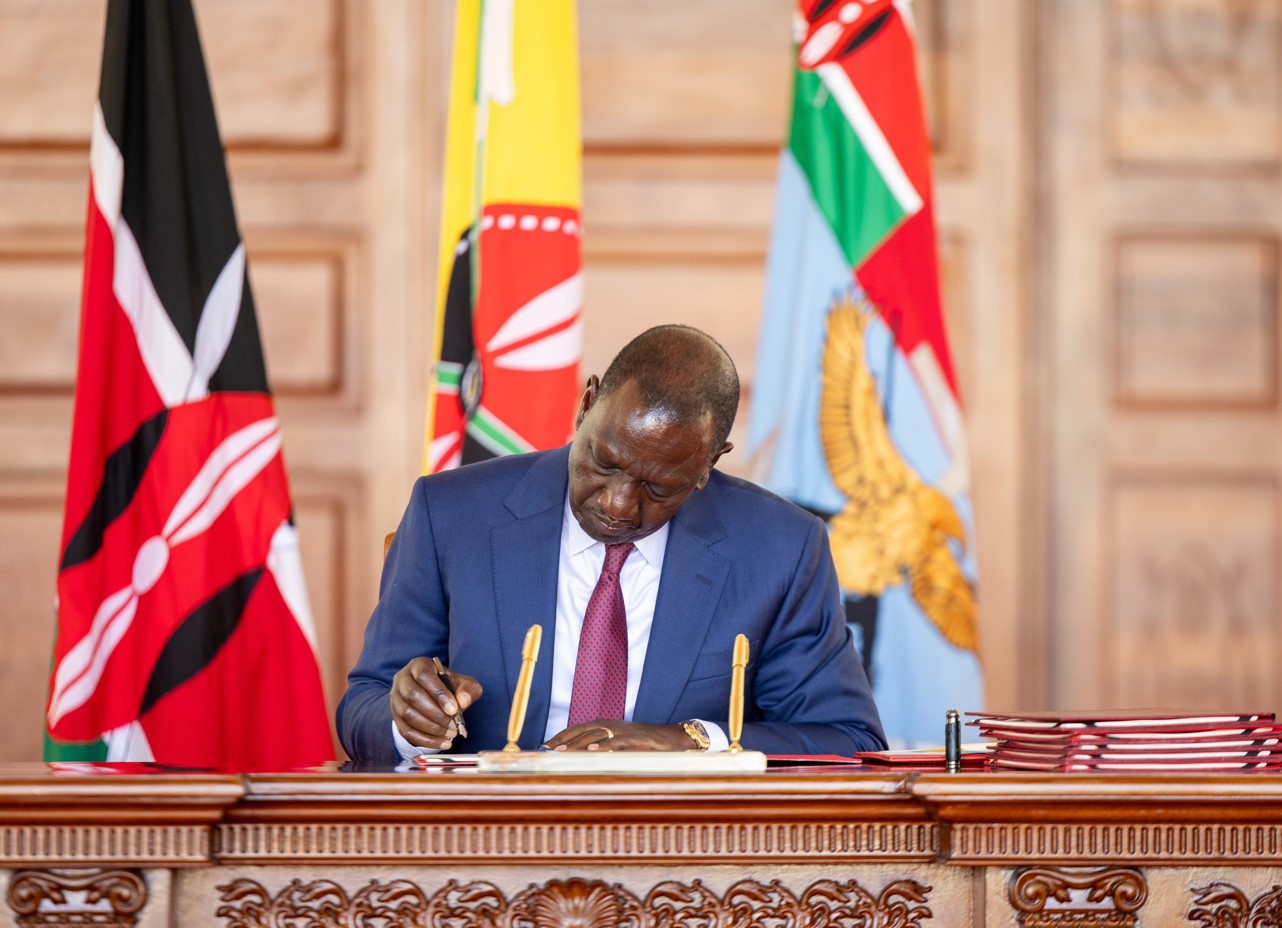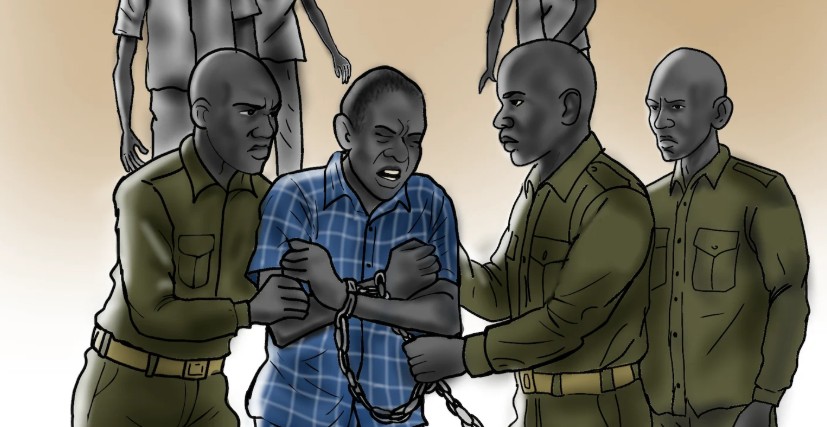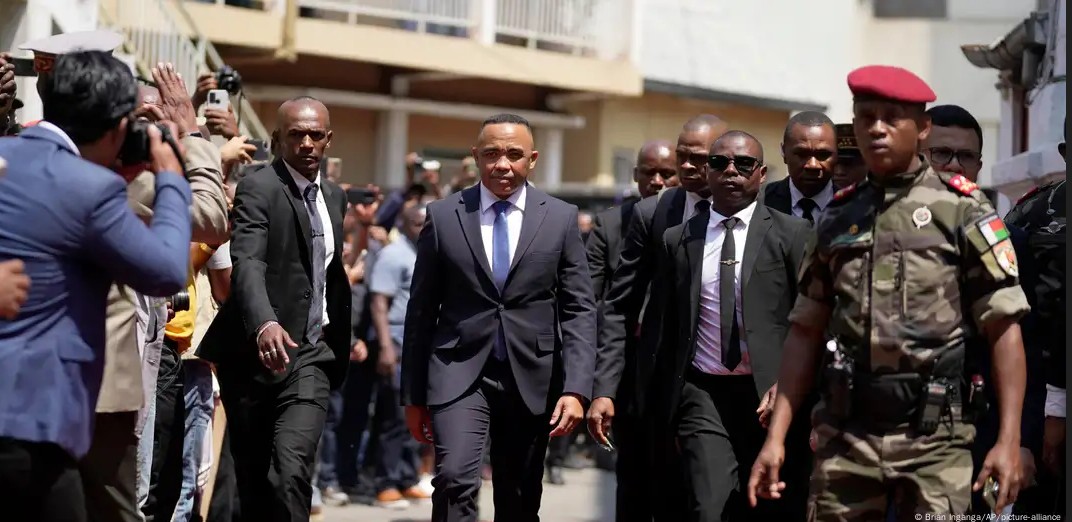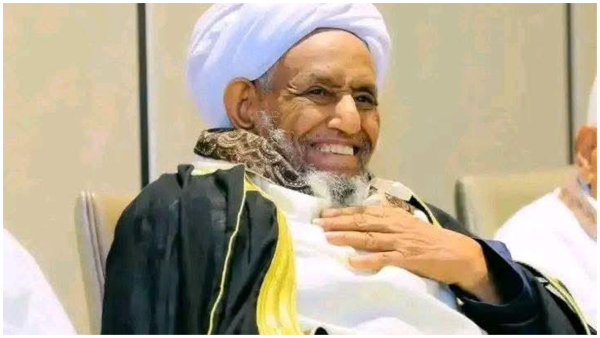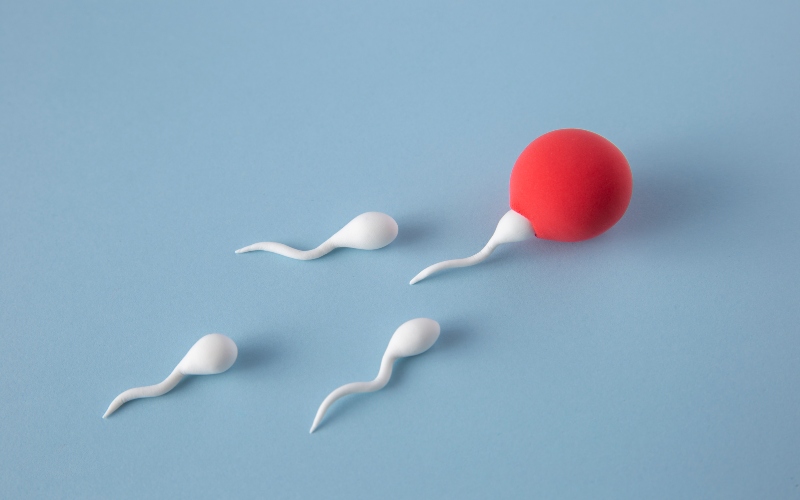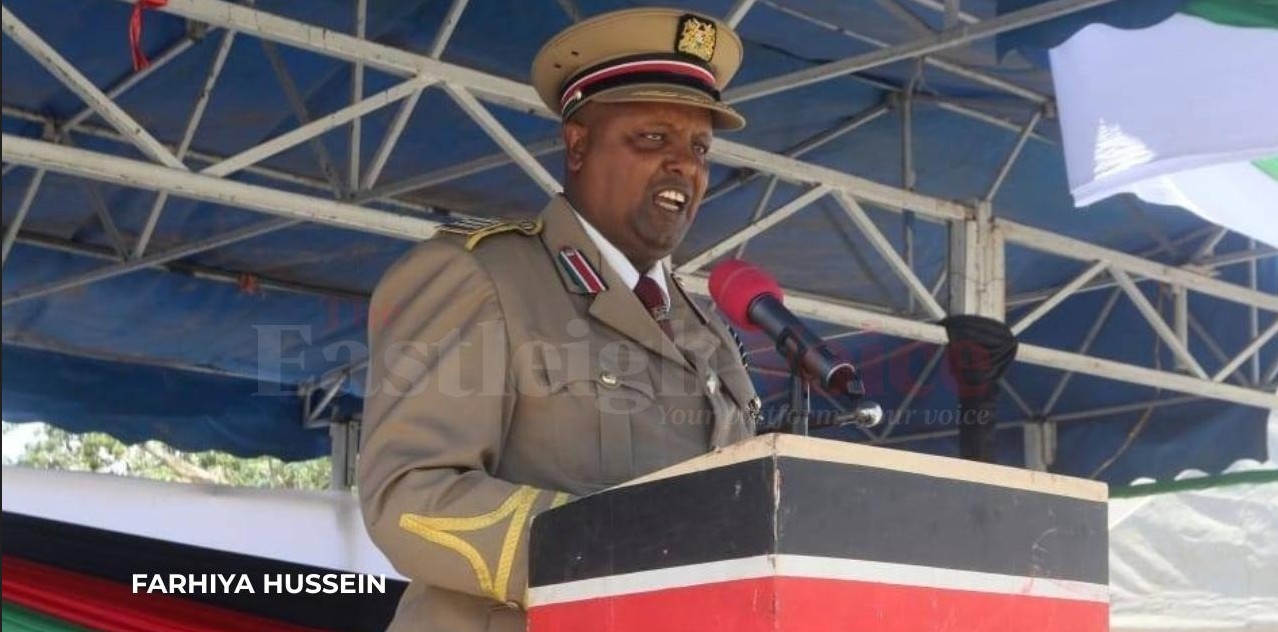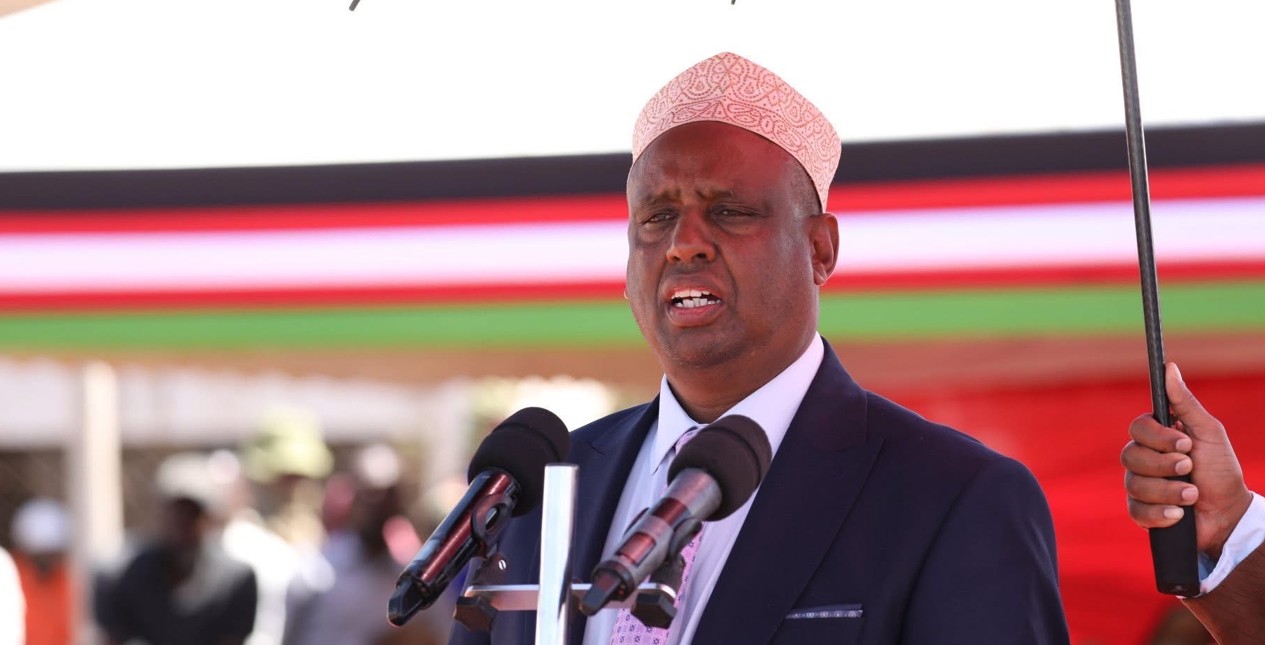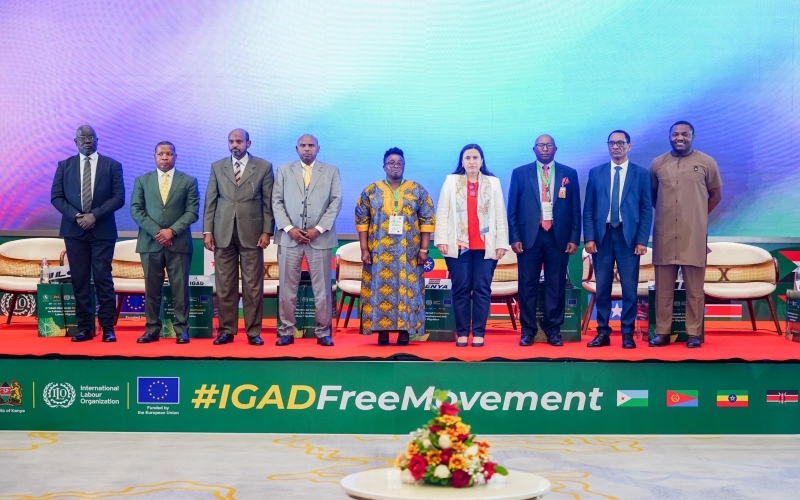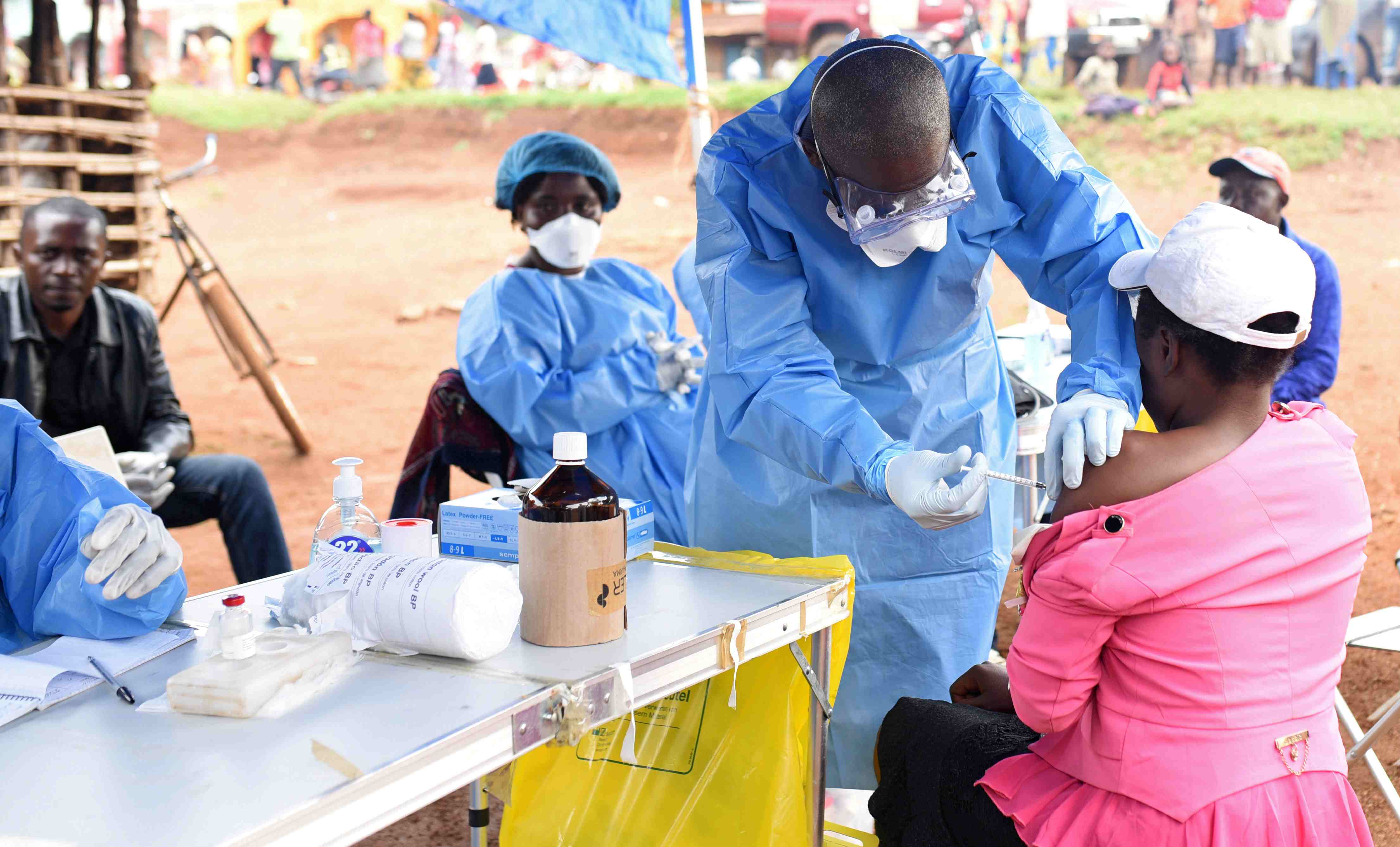UNICEF's borehole project offers relief to water-starved Madogashe town
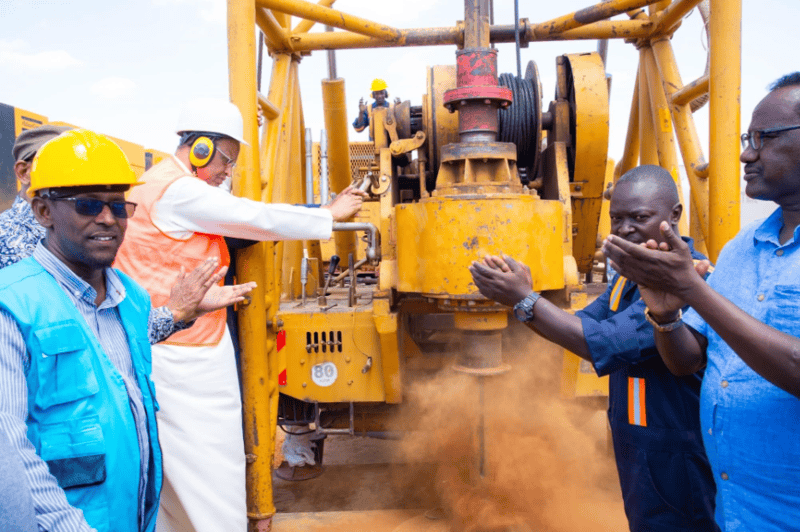
Residents of Madogashe have survived on water from hand-dug shallow wells in the nearby Togweine seasonal riverbed.
Residents of Madogashe town have reason to celebrate following the discovery of water and the commencement of drilling for a 480-metre borehole by UNICEF.
The residents have long struggled with a severe water shortage, after several attempts by both the government and non-governmental organisations to drill underground water proved unsuccessful.
More To Read
- Bold, diverse and unstoppable: Girls speak out amid a world in crisis
- WHO says rebuilding Gaza’s shattered health system critical to a lasting peace
- ‘Unprecedented’ number of children on the run in Haiti
- Over 60,000 children killed or maimed in Israel-Palestine conflict: UNICEF
- Gaza health system overwhelmed as WHO reports 42,000 people have life-changing injuries
- 75 per cent of the world’s poorest children live in Sub-Saharan Africa - report
Mohamed Abdullahi, head of UNICEF’s zonal office in Garissa, said that using remote sensing technology, water was discovered in a deep aquifer at Goosmo village in Madogashe.
"This brings great hope to the people of Madogashe, who have suffered for many years due to a lack of access to clean water," he said.
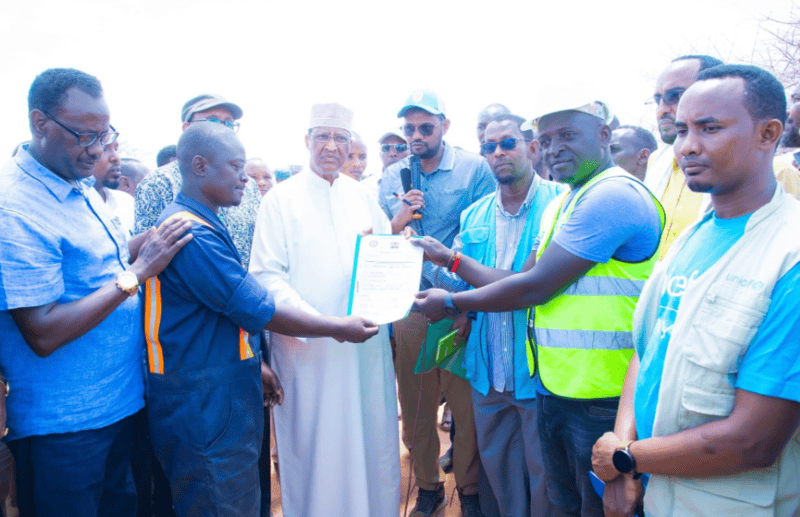 Garissa Governor Nathif Jama witnessed the handing over of the borehole project by UNICEF officials to the site contractor in Madogashe municipality. (Photo: Issa Hussein)
Garissa Governor Nathif Jama witnessed the handing over of the borehole project by UNICEF officials to the site contractor in Madogashe municipality. (Photo: Issa Hussein)
Speaking at Madogashe municipality on Friday during the project handover to the contractor, Mohamed announced that the drilling of the 480-metre borehole would soon begin following the discovery of underground water.
He also mentioned that UNICEF is undertaking similar water projects in Giriftu, Wajir County, and Lolongo, Turkana County.
Garissa Governor Nathif Jama, who was the chief guest at the handover ceremony, described it as a historic moment for the residents of Madogashe, who have endured years of unsuccessful searches for water in the area.
"The quest for reliable water for the people of Madogashe began during the colonial era, and despite several efforts since all have been in vain," he noted.
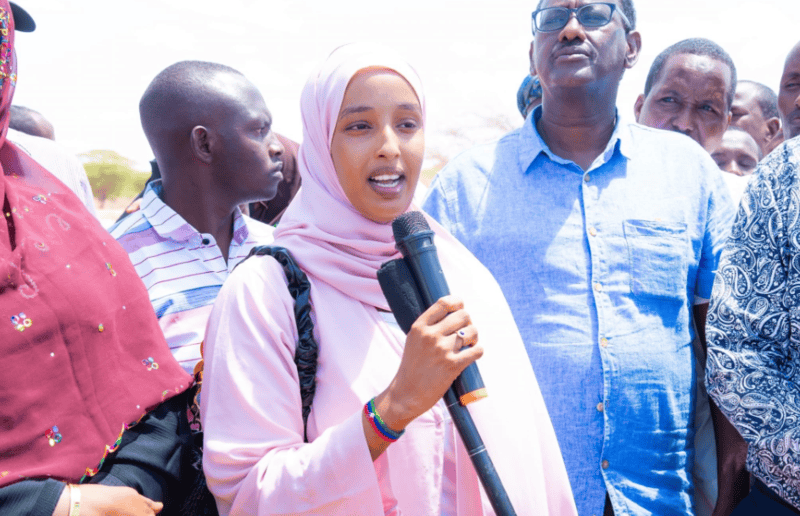 Madogashe Youth leader Sahara Ahmed Bare speaking during the event. (Photo: Issa Hussein)
Madogashe Youth leader Sahara Ahmed Bare speaking during the event. (Photo: Issa Hussein)
Due to the persistent water challenges in Madogashe, the county government, in partnership with development partners, recently embarked on an ambitious plan to construct a 37-kilometre pipeline from Qone borehole to Madogashe town.
"With the Qone Water Project now 80 per cent complete, we hope that the residents of Madogashe will soon have two promising water sources to end the long-standing crisis," he said.
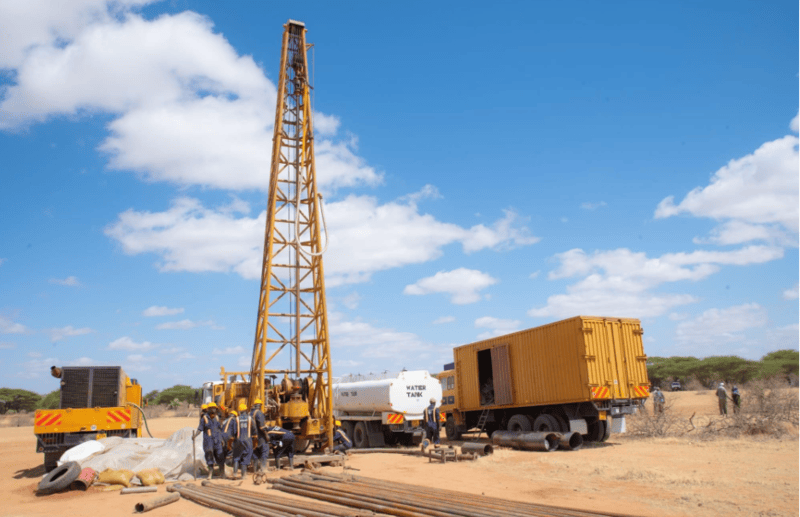 The borehole construction site. (Photo: Issa Hussein)
The borehole construction site. (Photo: Issa Hussein)
Sahra Ahmed Bare, a youth leader in Madogashe, praised UNICEF’s efforts, calling it a major relief for the community.
"Since my birth, access to reliable water has been a constant challenge. The community has long called for intervention to end the crisis, and today we are happy to witness the launch of the borehole project," she said.
Residents of Madogashe have survived on water from hand-dug shallow wells in the nearby Togweine seasonal riverbed.
Top Stories Today
